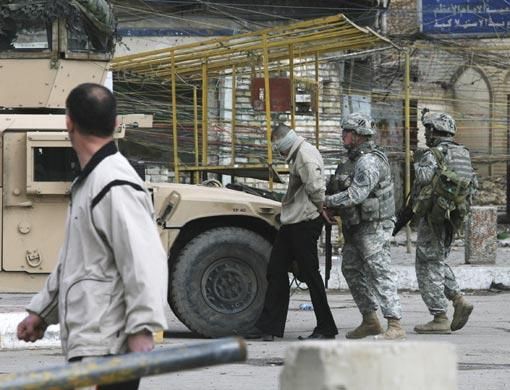Dubai: Iraq's political and economic progress has not occurred at the pace the US hoped to see - or at the pace the Iraqis had hoped to achieve, a US Army spokesman has told Gulf News in an interview.
Rear Admiral Greg Smith, Chief of Public Affairs and deputy spokesman for the Multi-National Force in Iraq, also said when asked about Al Qaida in Iraq, that the terrorist group remains a serious threat, but that the efforts of the people of Iraq are helping reduce the terrorist group's sway in the country.
Gulf News: Is the clearly improving situation in Iraq something to rely on, or is it temporary? Can Al Qaida re-emerge in Iraq?
Rear Admiral Greg Smith: Al Qaida remains a deadly serious threat to the people of Iraq. These are resilient, adaptive terrorists. They have the ability to recruit new leaders and followers, both inside and out Iraq. The terrorists turn to new methods - we see them today engaged in kidnapping, intimidation and extortion.
Al Qaida have alienated the people of Iraq. Murder and anarchy are the tactics they have left, and we see evidence of their disregard for human life every day. But the resistance of the people is having an impact on Al Qaida. The activities of Iraqi citizen volunteer groups are curbing their freedom of movement and their ability to retain members. Increasingly, the security outlook for Iraq is becoming dependent on the actions of the Iraqi people.
Is the military progress in Iraq coupled with political development?
Political and economic progress in Iraq has not occurred at the pace we hoped to see - or at the pace the Iraqis had hoped to achieve. Progress in those areas has been halting, but it is occurring. This is a country that suffered under decades of tyranny, and is now struggling with the most basic questions that surround building a functioning civil society. We have seen recent steps in the right direction. The Iraqis just passed an Accountability and Justice Law, made significant progress on their budget, chose a new inclusive national symbol by adopting a re-designed flag, and reformed pensions.
These are encouraging signs that the national government is bringing about reconciliation and building a country.
Will there be additional and permanent US bases in Iraq?That is a decision that will be made between our two governments. It is beyond the scope of the mission of Multi-National Force. We are focused on immediate concerns. President Bush and Defence Secretary Gates have made it clear in recent statements that the United States is not seeking permanent bases in Iraq.
How do you assess the situation in Iraq today in terms of further withdrawal of US troops?
That question is under consideration right now at all levels of the US government. We are assessing the situation to determine what recommendations will be made to the military and ultimately to Congress and the President.
Is Iranian interference in Iraq less than what it was in 2006 and parts of 2007?
We continue to see signs that groups supported by Iran are working to weaken and destabilise Iraq. We know that Iraqi extremists continue to be trained and paid by Iranians. We know that terrorists continue to use weapons that originated in Iran. We do not know whether these munitions are still being exported into Iraq from Iran.
Iran has expressed its interest in being a good neighbour to Iraq. We hope they live up to this pledge.
How does the situation stand with Syria today in terms of infiltrating trained terrorists into Iraq?
The flow of foreign terrorists into Iraq from has been reduced by as much as 50 per cent over the past year, due to a number of changes made by the Iraqi Security Force, the Coalition, and Iraq's neighbours. Syria appears to be less amenable to allowing terrorists to transit through its borders.
What is the situation with the PKK? Is the Kurdish government of use in locating their strongholds?
Like all sovereign states, Turkey has the right to defend itself from terrorism. The governments of Iraq, Turkey and the US agree that the PKK is a terrorist organisation. We believe in full consultation and coordination between governments in combating terrorism.













